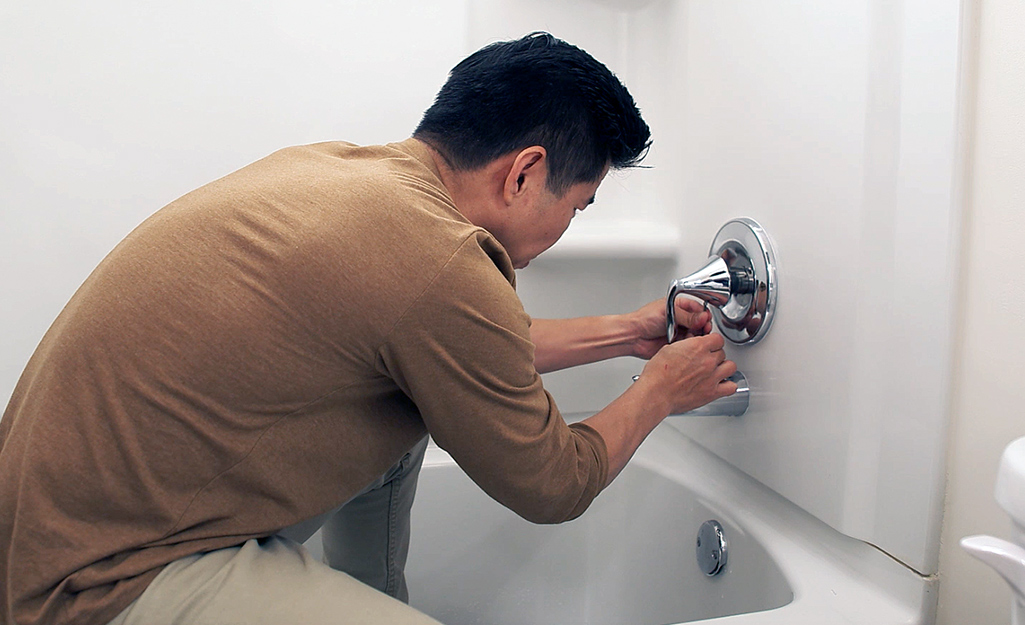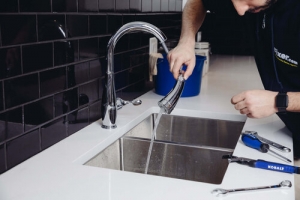My Value of Addressing a Faulty Faucet
My Value of Addressing a Faulty Faucet
Blog Article
Just about everyone maintains his or her own way of thinking when it comes to Water Dripping from Faucet: Why and How to Fix.

Dripping taps might feel like a minor inconvenience, however their effect goes beyond just the aggravation of the sound. From wasting water to sustaining unnecessary financial expenses and wellness threats, ignoring a leaking faucet can bring about numerous consequences. In this write-up, we'll delve into why it's crucial to resolve this common household concern immediately and successfully.
Wastage of Water
Ecological Influence
Dripping faucets add substantially to water wastefulness. According to the Environmental Protection Agency (EPA), a single tap trickling at one drip per secondly can lose greater than 3,000 gallons of water annually. This not only strains water resources however also affects communities and wild animals dependent on them.
Step-by-Step Guide to Dealing With a Dripping Faucet
Devices Needed
Before trying to repair a leaking tap, collect the needed devices, including a flexible wrench, screwdrivers, substitute parts (such as washing machines or cartridges), and plumber's tape.
Typical Faucet Issues and Their Solutions
Recognize the sort of faucet and the particular issue triggering the drip. Usual troubles consist of damaged washers, rusty shutoff seats, or malfunctioning O-rings. Describe supplier instructions or online tutorials for detailed advice on repair work.
Financial Prices
Raised Water Costs
Past the ecological effect, leaking faucets can blow up water bills significantly. The collected wastefulness gradually converts into higher utility costs, which might have been avoided with prompt repair work.
Possible Building Damage
Furthermore, extended leaking can lead to harm to fixtures and surface areas surrounding the faucet. Water buildup can create staining, corrosion, and also structural problems if left unattended, causing extra repair service expenses.
Wellness Worries
Mold And Mildew and Mold Development
The constant visibility of dampness from a dripping tap produces an optimal setting for mold and mold growth. These fungis not only endanger interior air top quality yet also present wellness threats, specifically for individuals with respiratory conditions or allergies.
Waterborne Illness
Stationary water in dripping taps can come to be a breeding place for bacteria and other microorganisms, enhancing the risk of waterborne conditions. Impurities such as Legionella bacteria thrive in stationary water, potentially causing serious health problems when consumed or inhaled.
Do it yourself vs. Expert Fixing
Benefits and drawbacks of DIY Repair Work
While some might try to deal with a leaking faucet themselves, do it yourself repair services come with their very own collection of challenges. Without proper understanding and tools, DIY efforts can worsen the problem or lead to incomplete repairs, prolonging the trouble.
Benefits of Working With a Professional Plumber
Hiring a professional plumber ensures that the underlying cause of the trickling tap is dealt with successfully. Plumbing professionals have the expertise and tools to diagnose and repair tap problems successfully, conserving time and minimizing the threat of further damage.
Environmental Responsibility
Individual Payment to Preservation
Taking duty for dealing with dripping faucets aligns with more comprehensive initiatives toward water preservation and ecological sustainability. Every person's activities collectively make a significant impact on protecting priceless sources.
Lasting Living Practices
By prioritizing punctual repair work and embracing water-saving habits, people add to lasting living practices that profit both present and future generations.
Safety nets
Normal Upkeep Tips
To stop leaking taps, execute routine upkeep such as cleaning aerators, inspecting for leakages, and replacing worn-out parts without delay. In addition, take into consideration installing water-saving gadgets or updating to a lot more effective components.
Relevance of Prompt Repair Works
Attending to leaking faucets as soon as they're observed avoids more water waste and potential damages, inevitably saving both water and money over time.
Impact on Building Worth
Understanding of Well-Maintained Building
Maintaining a residential or commercial property in good condition, including attending to upkeep issues like dripping faucets, boosts its regarded worth and value amongst potential buyers or occupants.
Influence on Resale Value
Qualities with well-kept plumbing fixtures, consisting of taps, command higher resale values in the realty market. Dealing with dripping faucets can add to a positive impact throughout property assessments and arrangements.
Verdict
Addressing a leaking faucet goes beyond simple benefit; it's a crucial action toward conserving water, decreasing economic expenses, and protecting wellness and residential property. Whether via DIY repair services or professional support, taking action to fix trickling faucets is a small yet impactful method to advertise accountable stewardship of resources and add to a much healthier, extra sustainable future.
How to Fix a Leaky Faucet: Step-by-Step Repair Guide
A leaky faucet may seem like a simple annoyance, but if it's not fixed promptly, that leak could cost hundreds to potentially thousands. From water damage to mold, mildew, and high water bills, even a tiny leak can be catastrophic if left unattended. Damage like this can even affect the overall value of your home, so it's important to take the right approach for leaky faucet repair. You may need the help of a plumber in some cases, but we've got a few tips you can try on how to fix a leaky faucet before calling the pros.
Four Faucet Types
When you're learning how to fix a leaky faucet, the first step is knowing what kind of faucet you're working with! There are four common types.
Cartridge Faucets
Cartridge faucets come in one- or two-handled varieties. In one-handled cartridge faucets, hot and cold water combines in a single cartridge. In the two-handled versions, hot and cold water are controlled separately and mixed in the faucet.
Ball Faucets
Ball faucets have a single lever you push up and down to adjust the pressure and rotate to change the temperature. A slotted metal ball controls the amount of water allowed into the spout.
Compression Washer Faucets
They're the oldest type of faucet, but they're still used in many homes — especially older ones. Compression faucets have two separate handles that, when turned, raise or lower the washer that seals a water valve. This valve stops water from flowing through the faucet when it is turned off.
Disc Faucets
Disc faucets rarely need to be repaired due to their maintenance-free design. The water flow is controlled by two discs — the upper one raises and lowers against a fixed lower disc, creating a watertight seal. If your disc faucet starts leaking, you may need to replace the seals or clean residue buildup from the inlets.
Fixing a Leaky Faucet
Step 1: Turn Off the Water
Whether you're learning how to fix a leaky bathtub faucet or how to fix a leaky kitchen faucet, always turn off the water supply to your working area when you're fixing a leak. The last thing you want is a flood added to your list of things to fix.
Look for the shutoff valves below your sink or around the tub and turn them clockwise to stop the water flow. If your faucet doesn't have shutoff valves, you may need to turn off the water for the whole house. Check to make sure it's off by turning the faucet on. If nothing comes out, you're ready to start the repair.
Step 2: Take Apart the Faucet
How you disassemble your faucet depends on the type of fixture you have. You can use a flathead screwdriver to remove the caps on top of the handle or handles for cartridge and compression faucets. Inside, you should see handle screws. Unscrew these with a screwdriver to remove the handle.
Disc- and ball-style faucets will typically have an inlet screw near the handle, and removing that will reveal the interior of the faucet.
Detach the Valve Stem
For cartridge- and compression-style faucets, you'll see the inner valve stem or cartridge once you remove the faucet handles. If you have a compression faucet, unscrew the brass valve stem. If you have a cartridge faucet, pull out the cartridge. If your cartridge has been in place for a while, it may require some tools or extra force to remove it due to mineral deposits.
Examine and Replace Parts
Once you've removed the parts, check them out to confirm what needs to be replaced. You may see corroded rubber washers, O-rings, stems, or cartridges. On a ball-style faucet, check the seats and springs for damage.
If you need to repair a leaky disc faucet, check the inlet and seals on the lower disc.
Once you determine what parts must be replaced, visit your local hardware store. Bring the damaged parts with you to ensure you can purchase the correct components to replace them.
Clean Valves and Faucet Cavity
If you've removed a stem or cartridge, you may notice mineral buildup in the faucet's threads. Use white vinegar to clean the valve seat by soaking it for a few minutes, then scrub it away with a soft toothbrush and rinse with warm water. You can also clean the interior of the faucet in the same way.
Reassemble the Faucet
Once your faucet is cleaned and the required parts have been replaced, it's time to reassemble it. Put the pieces back together and slowly turn the water supply back on. Doing this slowly is crucial because too much initial water pressure can damage the new hardware you've just installed.
https://homewarranty.firstam.com/blog/how-to-fix-leaky-faucet

I discovered that page about Should I Repair or Replace a Leaky Faucet? while doing a lookup on the internet. Enjoyed reading our article? Please share it. Help other people discover it. I cherish your readership.
Report this page